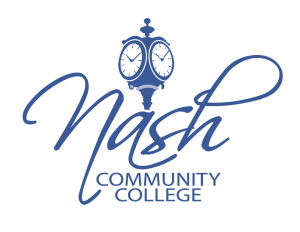NCC Opens New Confined Spaces Training Facility
Nash Community College offered an Underground Electric Line Construction Academy this summer in response to the utility industry’s immediate need to fill open positions. The training also provided an opportunity for students to earn third party credentials in First Aid/CPR, CDL Class A Restricted License, Flagger Certification, 811 Dig Safe Certification and OSHA 10. Additionally, the Underground Electrical Line Construction Academy and NCC’s Firefighting and Rescue Programs were able to partner to complete an underground confined space training area. Along with helping to prepare Line Construction students for their challenging work environment, this area provides firefighting and rescue departments with a training environment for conducting rescues of utility personnel and civilians who may find themselves injured or trapped following an accident.
“Safety is quite obviously the most important embedded thread in the Nash Community College Electric Line Construction curriculum,” Wendy Marlowe, NCC Vice President of Corporate and Economic Development said. “Utility workers and rescue personnel perform complicated technical field work, often with no room for error, in order to keep citizens comfortable and safe.”
The training prop provides a confined space with three sides underground, eight feet below grade, measuring approximately five feet wide and eight feet deep. The unit is accessed through a door on the exposed side and can have additional pipes and compartments attached for setting up different training scenarios. It can be difficult to find training locations, especially below ground, for confined space and trench rescue.
NCC has strong longstanding relationships with major employers in the utility industry including ElectriCities of North Carolina, Duke Energy, North Carolina’s Electric Membership Cooperatives, and others that often visit campus for training and recruit directly from the college’s program. “Instead of learning confined space work and rescue techniques in a traditional classroom, our students simulate these applications in a realistic setting,” Marlowe said. “As a college, we work with experts in the field whenever possible to implement experiential training preparing students for real-world careers.”
During the summer training, the College utilized equipment from Pike Electric not only for underground line work, but to also excavate land for the new training structure. “Our industry partners’ needs and expectations often dictate the types of instruction we provide. We depend on their feedback and partnerships,” Marlowe said.
The 16-week NCC Electric Line Construction Academy includes 400 hours of combined classroom and field training. Upon successful completion, students earn a Third Class Line Construction Certificate qualifying them to begin work as an entry-level line technician. The training emphasizes the overriding requirements of safety and teamwork in every aspect.
According to the U.S. Department of Labor’s Occupational Outlook Handbook, a growing number of retirements is creating new job opportunities for electrical power line installers and repair technicians. The median annual income for line technicians is around $65,000.
The 18-week Recruit Firefighter Training Academy includes 800 hours of firefighting, rescue and emergency vehicle operation training as well as necessary skills to be a caring professional ready for community service.
According to the U.S. Department of Labor’s Occupational Outlook Handbook, employment for firefighters is expected to grow slightly over the coming years. The median annual wage for entry level firefighters is around $45,000.








